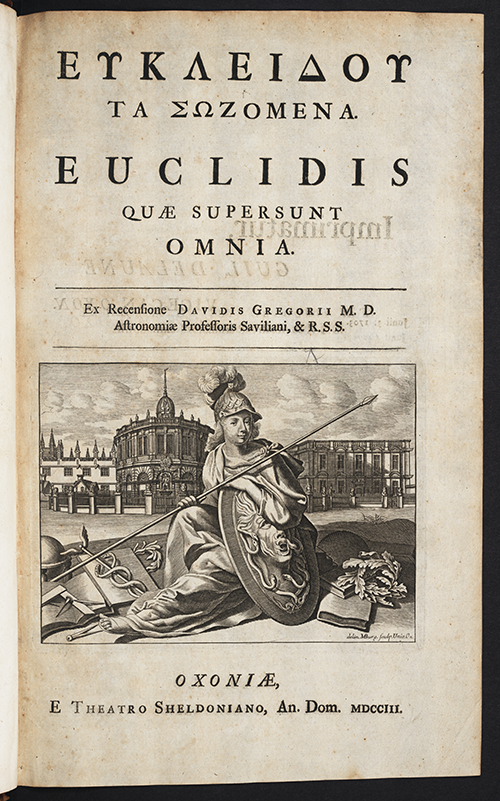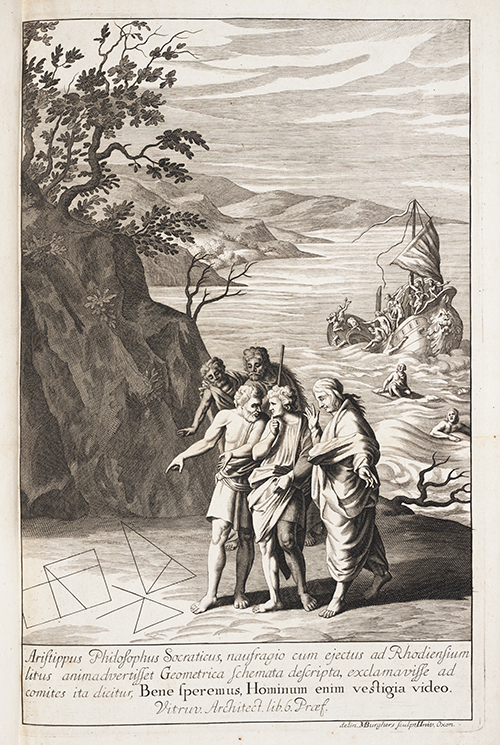- About MAA
- Membership
- MAA Publications
- Periodicals
- Blogs
- MAA Book Series
- MAA Press (an imprint of the AMS)
- MAA Notes
- MAA Reviews
- Mathematical Communication
- Information for Libraries
- Author Resources
- Advertise with MAA
- Meetings
- Competitions
- Programs
- Communities
- MAA Sections
- SIGMAA
- MAA Connect
- Students
- MAA Awards
- Awards Booklets
- Writing Awards
- Teaching Awards
- Service Awards
- Research Awards
- Lecture Awards
- Putnam Competition Individual and Team Winners
- D. E. Shaw Group AMC 8 Awards & Certificates
- Maryam Mirzakhani AMC 10 A Awards & Certificates
- Two Sigma AMC 10 B Awards & Certificates
- Jane Street AMC 12 A Awards & Certificates
- Akamai AMC 12 B Awards & Certificates
- High School Teachers
- News
You are here
Mathematical Treasure: David Gregory's Commentary on Euclid

David Gregory (1659-1708) was a Scottish mathematician. In 1683, he was appointed Professor of Mathematics at Edinburgh University. Later, in 1691, he became Savilian Professor of Astronomy at Oxford University. A fervent commentator on the works of Isaac Newton, in 1703 Gregory published Euclidis quae supersunt omnia, his commentary on Euclid’s Elements. The title page of this work is shown above.

The frontispiece for this work, shown above, has frequently appeared in presentations given by contemporary historians of mathematics, particularly Fred Rickey. It shows a group of shipwrecked survivors on the shore of the island of Rhodes. Among this group is the Socratic philosopher Aristippus (ca. 435-356 BCE) who upon seeing the diagrams drawn on the sand exclaims, “We have nothing to fear as I see the presence of men.’’ The implication given is that only civilized men would be doing geometrical problems from Euclid’s Elements.
Seven years later, Edmund Halley would publish a translation of Apollonius’s Conics with the same frontispiece, except that the diagrams in the sand would be of conics. See Mathematical Treasure: Halley's Conics of Apollonius.
These images are supplied through the courtesy of the Linda Hall Library of Science, Engineering & Technology. A complete viewing of these works can be found in the library’s digital collection.
Frank Swetz (The Pennsylvania State University), "Mathematical Treasure: David Gregory's Commentary on Euclid," Convergence (January 2016)




